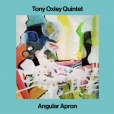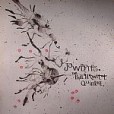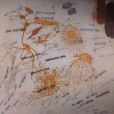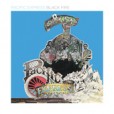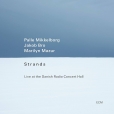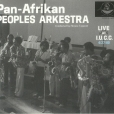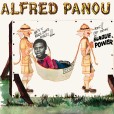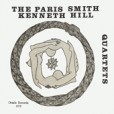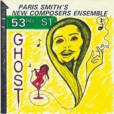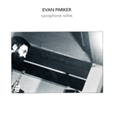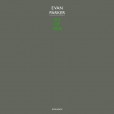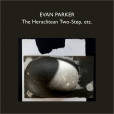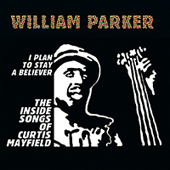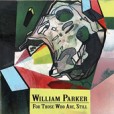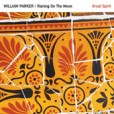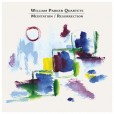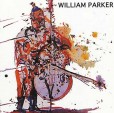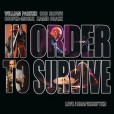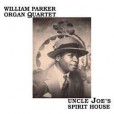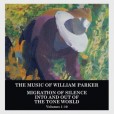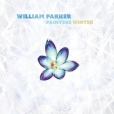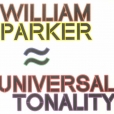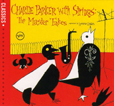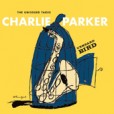Your basket is empty

‘A never-before-released recording of a performance in Bochum, Germany, in 1992; in its complete glory, mastered from the original tapes. The storied English drummer leads an intriguing quintet: the trumpeter and flugelhornist Manfred Schoof, whose 1969 FMP LP European Echoes stands as one of the great documents of orchestral improvisation; the American bassist Sirone, from the Revolutionary Ensemble; the saxophonist Larry Stabbins, bringing the versatility and mix of ferocity and buoyancy that he added to diverse projects from Spontaneous Music Ensemble and Peter Brötzmann to Weekend and Working Week; and Pat Thomas on piano and electronics, when he was still a relative newcomer to the British scene, rapidly becoming one of its leading lights and most sought-after collaborators.
‘Oxley drew on this crew’s wide range of orientations for this iteration of Angular Apron — a work combining jazz improvisation with the influence of Xenakis, Ligeti and co — exploiting their extremes of timbre and register, calling on their acuity as listeners, and prodding them with his finely-honed junkshop of metal percussion, with which he detonates the hour-long piece.’
Militant jazz, fusion, funk and soul from mid-seventies Manenberg, outside Cape Town, with a set of roots in club dance traditions like ballroom (‘langarm’), Khoisan hop-step and the whirling ‘tickey draai’ (‘spin on a sixpence’) of the mine camps; others in jazz-rock and the New Thing.
‘The eleventh and final concert recorded by Tom Albach at Immanuel United Church of Christ, here is one of the greatest Arkestra live recordings
‘Brimming with intense energy throughout, it culminates in the 1-2 punch of a blazing Leland’s Song followed by a fragile rendition of Tapscott’s As A Child, featuring Adele Sebastian performing her favorite Tapscott composition.
‘This one is not to be missed.’
‘At the Immanuel United Church of Christ on November 25, 1979. This is the eighth in a series of eleven concerts recorded at the church. This month saw the Arkestra stretching out at blissful heights — the half hour of Carnival is worth the price of admission alone, but the same could be said for the monumental Nation Rising, and the deep take on Roberto Miranda’s Faith. The groove kicks off with Horacio and doesn’t let up the whole concert.’
A stunning complement to Theme De Yoyo!
Panou was an activist and actor, in Paris from Benin; he plays a refuse collector in Jean-Luc Godard’s Weekend. His texts here cross existentialism and Black Power like a knockabout Richard Wright, with an extra shot of anti-colonialism. Recorded by Pierre Barouh for Saravah, in the same months as its classic Comme A La Radio LP with Brigitte Fontaine, furthering the AEC’s rowdily brilliant elaborations of Leroy Jones’ Black Dada Nihilismus.
It’s a scorcher; hotly recommended.
His third LP, fronting a septet in 1996. The women’s extra percussion keeps things bubbling; and AACM stalwart Shelton Salley brings a new edginess, on guitar.
Try the Latin groove of the opener, Psalm 37.
Firing interpretations of Curtis, full of funk and soulfulness, grooving jazz fire, and good old-fashioned revolutionary politics, by this octet with Hamid Drake, Dave Burrell, Leena Conquest, Amiri Baraka.
Dynamite twenty-minute version of (Don’t Worry) If There’s A Hell Below, We’re All Going To Go.
Four dazzlingly varied, closely written, new works — WP’s first composition for symphony orchestra; a commissioned piece for a standing new music ensemble; a chamber-jazz song series featuring Leena Conquest; and something for a particularly diverse line-up, Universal Tonality in mind. Handsomely presented; a limited edition.
His long-standing quartet with Hamid Drake, Rob Brown and Lewis Barnes — plus singer Leena Conquest and pianist Eri Yamamoto. The entire balance of the material recorded at the 2007 session for the classic Corn Meal Dance album.
‘A gorgeous soul-jazz organ quartet album that hearkens back to the early-mid ‘60s; fully revitalized by William Parker’s indelible compositions and the generous musical gifts of Darryl Foster, Cooper-Moore, and Gerald Cleaver. A straight-up joy. This very special project was produced by William Parker for his own Centering Records imprint, and dedicated to his Aunt Carrie Lee and Uncle Joe (pictured on the cover). It was created to celebrate the occasion of their 65th wedding anniversary on August 6th, 2010.’
A one-time-only LP pressing, remastered and re-sequenced, including a download card for the album as originally released on CD, adding three tracks.
The trio of Daniel Carter (reeds, trumpet, flute), William Parker (bass, trombonium, shakuhachi), and Hamid Drake (drums).
The title Painters Winter addresses “those who paint with sound, in different landscapes, to celebrate the coming of the seasons: winter spring summer and autumn. Acknowledging the entire universe of world jazz music. Discovering the undiscovered.” According to WP’s liner notes, ‘The music on this album is a tribute to the flow of rhythm as melody and pulsation. Laced with the joy and the bounce, the dance and the heartbeat. Giving a nod to all the music that has ever passed through us.’
‘An epic archival recording which brings the titular concept to full, vibrant life. It features a once-in-a-lifetime assembly of creative music luminaries and legends — including Billy Bang, Grachan Moncur III, Jerome Cooper, Dave Burrell, Jin Hi Kim, Joe Morris, Miya Masaoka, Daniel Carter, Rob Brown, Jason Kao Hwang, and Gerald Cleaver — in performances at Roulette, NYC in December 2002. Parker invited sixteen musicians of various ages, cultures and musical backgrounds to join him in an experiment of ‘breathing together.’ While he provided a score, all were advised that there need not be adherence to it. Parker’s hope with this approach is that each musician will trust their own instincts — and those of the musicians around them — enough to let the sound find its shape in real time. That constant current of inspiration, and open, receptive communication, was present at Roulette that night, and it’s on full display on this magical recording. Whether embodying a roof-raising big band, or an intimate cross-cultural chamber ensemble, the collective heard here always displays an impressive coherence and sensitivity.’
